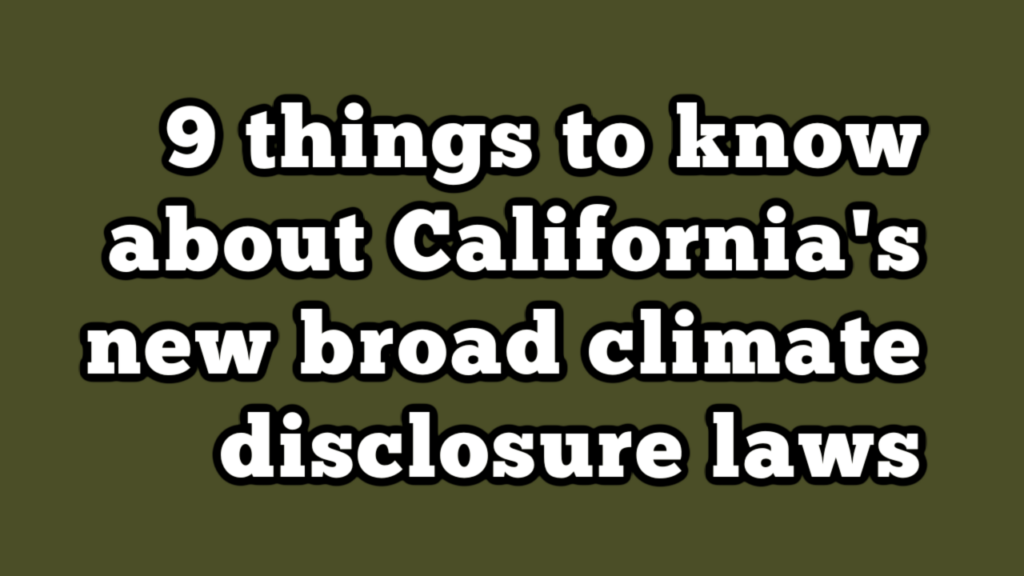9 things to know about California’s new broad climate disclosure laws
October 12, 2023 •

Here is a blog from PublicChatter.com by Perkins Coie’s Allison Handy and Marcy Hupp:
Last month, the California legislature adopted two wide-ranging climate disclosure bills that will require extensive disclosure from larger public – and private – companies. California Governor Newsom signed the two bills, SB 253 and SB 261, over the weekend.
Here are 9 things to know:
- SB 253 requires any business entity with $1 billion or more in revenue – it doesn’t matter that the revenue is derived outside of California – that “does business” in California to file annual reports that disclose Scope 1, 2 and 3 emissions. Roughly 5300 companies are expected to be impacted by this law.
- Yep, Scope 3 emissions disclosure would be required. This is a notable requirement of SB 253 that goes beyond the SEC’s climate rule proposal, which would require disclosure of Scope 3 emissions only if they are material. (And SEC Chair Gensler has telegraphed recently that Scope 3 disclosures may not be required in the final SEC rule.)
- Yep, disclosure requirement applies regardless if the company is public or private, if it exceeds the revenue threshold.
- Scope 1 and 2 emissions reporting requirements would be effective in 2026 for 2025 information. And Scope 3 emissions reporting requirements would be effective in 2027 for 2026 information.
- Assurance reports would be required too. They would be required in 2026 for Scope 1 and 2 emissions at the limited assurance level and at the reasonable assurance level in 2030. They would be required for Scope 3 emissions at the limited assurance level in 2030.
- SB 261 requires any business entity with $500 million or more in revenue that does business in California to disclose a biennial report addressing climate-related financial risk (using the TCFD approach) and measures adopted to “reduce and adapt to climate-related financial risk disclosed.” Roughly 10,000 companies are expected to be impacted by this law.
- There is still a long way to go in how these laws will be implemented as the rules adopted by the California Air Resources Board (known as “CARB”) could help define the required disclosures.
- SEC Chair Gensler testified recently in Congress that these California laws could impact the cost-benefit analysis of the SEC’s upcoming climate disclosure rule because they are more expansive than what the SEC is likely to adopt. But he also testified that California’s interest in Scope 3 emissions reporting would not bear on the SEC’s view on this topic.
- Litigation is likely to ensue challenging the laws.
